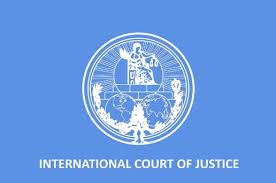Individuals under International Law: Position and Loss of Nationality
1. Position of Individuals under International Law
Traditionally, International Law (IL) was seen as a body of rules governing relationships only between sovereign states. However, this perception has evolved significantly. Today, individuals are increasingly recognized as subjects of international law, meaning they have rights, obligations, and responsibilities under international legal systems.
A. Recognition of Individuals as Subjects of International Law
Human Rights Law: Individuals have internationally recognized rights under instruments like the Universal Declaration of Human Rights (UDHR), International Covenant on Civil and Political Rights (ICCPR), and European Convention on Human Rights (ECHR).
International Criminal Law: Individuals can be held responsible for crimes such as genocide, war crimes, and crimes against humanity. This is enforced through mechanisms like the International Criminal Court (ICC).
Diplomatic Protection: States may exercise diplomatic protection for their nationals when their rights are violated abroad, highlighting the individual's role in international relations.
Investment Arbitration: Individuals and corporations (legal persons) can directly bring claims against states under bilateral investment treaties (BITs).
B. Limitations
Individuals are still not fully equal to states in the legal hierarchy.
Their ability to enforce rights or bear obligations is often mediated through states or international institutions.
2. Nationality in International Law
Nationality is a legal bond between an individual and a state, and it plays a fundamental role in determining the rights and responsibilities of individuals in international law.
A. Importance of Nationality
Determines state jurisdiction and diplomatic protection.
Influences rights of residence, employment, and participation in national life.
Central to migration law, asylum law, and extradition agreements.
B. International Standards on Nationality
While nationality is mainly regulated by domestic law, it must conform to international principles. Key instruments include:
The Hague Convention on Certain Questions Relating to the Conflict of Nationality Laws (1930).
1954 and 1961 Statelessness Conventions.
UNHCR Guidelines on Statelessness.
Human rights treaties (e.g., Article 15 of the UDHR: “Everyone has the right to a nationality”).
3. Loss of Nationality
The loss or deprivation of nationality can occur for various reasons, and international law imposes certain limitations and protections to prevent abuses.
A. Voluntary Loss
Occurs when an individual renounces nationality, often to obtain another nationality or avoid obligations like military service.
Recognized and permitted under most legal systems if the individual holds or will obtain another nationality (to avoid statelessness).
B. Involuntary Loss / Deprivation
Can result from:
Fraud in naturalization.
Acts contrary to national loyalty (e.g., treason).
Extended residence abroad (in some states).
International standards require that such deprivation must:
Not be arbitrary.
Be in accordance with law.
Avoid resulting in statelessness (per the 1961 Convention on the Reduction of Statelessness, unless exceptions apply like fraud or conduct contrary to vital national interests).
C. Statelessness and International Protection
Stateless persons are those not considered a national by any state under the operation of its law (1954 Statelessness Convention).
International law seeks to reduce and prevent statelessness through:
Procedural guarantees before deprivation.
Rights to appeal.
Ensuring access to nationality for vulnerable groups (e.g., children born in a state who would otherwise be stateless).
4. Key Cases and Examples
Nottebohm Case (Liechtenstein v. Guatemala, ICJ 1955): Highlighted the principle of "genuine link" in nationality for purposes of diplomatic protection.
Genovese v. Malta (ECtHR 2011): Found that discrimination in access to nationality could breach the European Convention on Human Rights.
Alleged violations of the 1961 Convention (UNHCR reports): Cases where states have revoked citizenship for political reasons, raising concerns of arbitrary deprivation.
Conclusion
The position of individuals under international law has evolved from passive subjects to active bearers of rights and responsibilities. Nationality remains a central legal concept connecting individuals to the international system, and its loss—particularly arbitrary or resulting in statelessness—is carefully scrutinized under international legal standards. International law now plays a growing role in ensuring that the acquisition and loss of nationality align with human rights principles, aiming to protect individuals from statelessness and discriminatory practices.
Do write to us if you need any further assistance.












comments